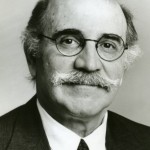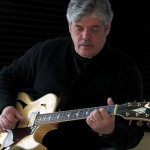George Harrison’s “My Sweet Lord” Copyright Case

“Every time I put the radio on, it’s ‘Oh My Lord,’” John Lennon said in December 1970. “I’m beginning to think there must be a God.”
Lennon wasn’t alone. As his former bandmate George Harrison’s debut single blanketed the airwaves, a struggling New York publisher, Bright Tunes Music, must’ve heard divine intervention in the melody of “My Sweet Lord.” It was identical to a chestnut in their dusty catalog, “He’s So Fine.”
On Feb. 10, 1971, as Harrison’s hit was idling down from four weeks at No. 1, Bright Tunes filed a copyright infringement suit.
The older song, written by Ronnie Mack, had been a chart-topper in 1963 for the Chiffons. That same year, the Beatles were routinely singing the praises of such American R&B tunes, both in interviews with the British press and in the set lists of their live show. There was no question of access to the previous work, as Harrison freely admitted during his trial.
But the Chiffons weren’t on his mind in 1969, when he picked up his guitar and started singing the word “Hallelujah” over a two-chord progression. “I was inspired by the Edwin Hawkins Singers’ version of ‘Oh Happy Day,’” Harrison said.
If anything gave him pause about his song-in-progress, it was the mention of God in the lyric. “I thought a lot about whether to do that, because I would be committing myself publicly and I anticipated that a lot of people might get weird about it.”
Apparently, no one in Harrison’s inner circle got weird about the obvious similarities of his new song to “He’s So Fine.” Maybe the fear of calling a Beatle a thief was stronger than the need to tell the truth.
Harrison gave the song to keyboardist Billy Preston for his debut single on Apple Records, but the release was withdrawn in September 1970. Two months later, Harrison’s version—produced by Phil Spector (surely the Titan of Teen detected plagiarism)—was released as the lead-off single from his triple-album debut All Things Must Pass.
“I wasn’t consciously aware of the similarity when I wrote the song,” Harrison said. “But once it started to get a lot of airplay, people started talking about it, and it was then I thought, ‘Why didn’t I realize?’ It would have been very easy to change a note here or there and not affect the feeling of the record.”
Harrison tried to settle out of court. His manager Allen Klein even offered to buy Bright Tunes’ entire catalog. But the publisher dug in, insisting that Harrison should surrender his copyright. A four-year stalemate ensued, during which Bright Tunes went into receivership for unrelated business problems.
The case finally came to trial in February 1976. Side by side, the two songs were painstakingly analyzed. “The plaintiff had huge charts made up with the three notes from Motif A and the four or five notes from Motif B drawn on them,” Harrison recalled. “And they talked about these for about three days, to the point where I started to believe that maybe they did own those notes.”
In the end, Harrison was found guilty of “subconscious plagiarism” and had to pay $1,599,987 of the earnings from “My Sweet Lord” to Bright Tunes (songwriter Ronnie Mack had died in 1963, shortly after “He’s So Fine” charted). “I’ve never had any money from the song,” Harrison later recalled. “It’s always been in escrow. As far as I’m concerned, the effect the song has had far exceeds any bitching between copyright people and their greed and jealousy.”
There was a happy ending for Harrison, sort of. The headaches of the litigation inspired him to write “This Song,” a single which went to No. 25 in 1976.
—By Bill DeMain
For the full article on artists who faced copyright infringement cases: You Stole My Song
Category: In Case You Haven't Heard








 Creative Workshops fill up quickly! Sign up here to receive first notice and announcements.
Creative Workshops fill up quickly! Sign up here to receive first notice and announcements. 





Ed Zackary the same as “I Will Follow Him” (Little Peggy March) and “Take My Breath Away” (Berlin, Top Gun soundtrack). Someone alert the lawyers.
Very frequently prominent, skilled musicians borrow or simply replicate passages, chord changes and melodies from their influences. This does not mean they are outright plagiarizing!
Consider that an original bar of music hasn’t been written since the 11th century!This underscores how difficult true “intellectual property” is as a concept. Harrison did not steal “My Sweet Lord”; and was left begging off with the absurd idea of “unconscious” plagiarizing. Enforcing this idea is to put a muzzle on almost all modern songwriting! Everyone,over time would be suing everyone! The end result is ridiculous stifling, opportunistic greed!
A piano has 88 keys, so 88 to the power of 88 equals 1.30159283E+171. Any half bright code monkey could write a program that would cover every permutation and own the copyright for all music going forward. Is that the world we want to live in?
I could probably come up with a list of about ten thousand blues songs with the same notes and progression, but nobody is up in arms over this. Maybe this genre just knows how to get along and appreciate each other.
Okay, the notes Definitely Sound the Same, and the Court Decided That They Were, But the Words & Meanings of Those Songs, are Definitely NOT the Same!!
“He’s So Fine,” Was A Cute & Fun Song! Tho, We All Know That When the Great George Harrison Was Writing “My Sweet Lord,” He Was Not Saying To Himself,….”Oh, I Think I’m Going To Steal the Melody & Notes From “He’s So Fine!!” It Came From His Oh, So Talented, & Genius Mind, (And of Course, From The “Ultimate Songwriter,” in Heaven, Through Which We Receive All of Our Talents, (“OUR”) “MY SWEET LORD,” (and Who Knows, Maybe A Little Help From “Hari Krishna!!” 😉)
Thank You George, For All of Your Talents, And Thank You Our Sweet & Dear Lord, For Giving Us George Harrison, His Beautiful Talents,…And His Beautiful Soul!!!
Thank You Also For Giving All of Us, Your Children, Life, Love, and Music!!
Rest in Peace, George.
Many years ago I heard a radio interview with George Harrison, in which he quoted the American judge who decided the copyright infringement claim against him. ‘What a shame’, said the judge,’because I liked BOTH songs’.
Says it all, doesn’t it.
Andrew, nice cheap shot at lawyers. Do you have any idea how much work it is to bring a successful copyright infringement lawsuit . . . I’ll answer that – no you don’t. Because if you did, and if you had any respect at all for the law and those who protect it, you would not have made such a childish and irreverent statement about lawyers pickin “up any spare cash that is floating around . . .” I have no idea what you mean by “. . . & it won’t happen unless you are already rich and famous (so I can relax for now!)” So I’ll just let that ride, as you clearly cannot adequately express yourself and even if you could, your ideas are not worth considering. Of course lawyers make money . . . do you expect them to work for free? If it weren’t for lawyers who take these cases – sometimes on a contingency basis on behalf of clients who are, as you say, ” . . . already rich and famous.” Not all are rich, even though famous, look at the Isley Brothers who sued Michael Bolton and won. The music business is rampant with frauders and it is a good day when they are caught and brought to justice as in this case, the Marvin Gaye v. Sheeran case and many others who have prevailed when their rights were violated. Maybe you would like to take the next case, spend 500 hours of work bringing it to trial, and then not get paid?
I only have one question of you Andrew, when was the last time you worked for noththing? Yeah, that’s what I though, never, and yet you begrudge lawyers making a living. Go figure.
Let me make this very clear: NO ONE without a deep and meaningful understanding of music history including all eras and nationalities has any business opining on this subject. The predatory practices of non-musicians and the opinions of the ignorant throwing around words like ‘thief’ are about as offensive as humanly possible. The simple fact is that virtually no one involved in these discussions (and sadly the trials) has any business at all being involved. Here is your assignment if you want to have a truly meaningful opinion: study (western) music history back to the birth of polyphony in Europe and become very well informed about all the major things that have happened until the present day. Next study ethnomusicology (the condescending term our culture uses for the music of the rest of the world). You might even study the fundamentals of music theory to give you a basic understanding of how it works. When you are finished you can come back with your tail between your legs and tell me why innovation in the music of our culture ceased around 1990.
Sorry Kali, but as a 72 year old lawyer who has handled copyright infringement cases, and a musician and music historian (I’ve been around a long time), I have absolutely no idea what you are talking about. Whose side are you on? . . . the infringer of infringed?
Isn’t ‘unconscious plagiarism’ the same as derivative product in copyright law? – (not a violation) Derivative means a work was influenced by another artist. If anyone were so moved by my work to absorb it into their own sub consciousness, I’d be so flattered there would have to people around to constantly remind me that I am merely mortal!
In this case, the similarities are too numerous. Melody, chords, chorus in background, arrangement, even the lyric content…both songs singing the praises of some guy. It’s more than “influence”. Hard to believe no one in GH’s circle, all those musicians, didn’t point it out.
Maybe they were all too busy being ‘unconscious’.
John Lennon did just that,he told George to change a few chords ,notes here and there,,George never took his afvice..
Clearly one of the most obvious plagiarisms I have ever heard…but it’s completely understandable that it could have been unconscious. I would think that Krishna might have let him know…….
It is obvious what happened. Phil Spector made his whole career off of songs like ‘He’s So Fine’. He was the producer of ‘My Sweet Lord’ and surely he was responsible for the copyright infringement and plagiarism. Nobody else seems to see the connection.
George was of all the Beatles and of all the musicians I have ever seen or hear, or deeply listened to, one of, if not the most spiritual man who ever plucked a guitar. His search for God led him down many paths, but in the end, as he died, he glowed with God’s light, towards which we all are headed, we who seek God and His light. Bless George Harrison, Lord, he was one of a kind and brave enough to discuss You, despite the misgivings of many to discuss Your holy name at that time, he sought your light and openly and bravely sought to spread the message of your son; Love one another; as Jesus commanded us to do. Whether it be Krishna or Buddha or Mohammed you believe in, if we but love one another, we have lived full and richly complete lives, so its best you look at things in the right light, lest ye be hung up in eternal darkness.
Some of the information above is unfortunately not accurate. George Harrison never had to pay the $1,599,987. Klein did buy Bright Tunes, but not for Harrison, but for himself to fight Harrison. A more accurate and detailled report can be found at :
http://abbeyrd.best.vwh.net/mysweet.htm
No one can own notes. Melody lines are the issue. Lyrics can also be the issue. Sometimes whole works or just a small part of a works can be an issue. Neither song was at the same tempo nor in the same key. George was found to have “subconsciously” plagiarized the song. The song has nothing to do with the “Christian” God but more to do with Lord Krishna who in some teachings some say Jesus Christ is a reincarnation of. There is no such thing as spare cash especially where lawyers are concern. Lasting “fame” is a misnomer when “legacy” is much more desirable. Fame to a dead man is worth less than the coins on his eyes because the two coins will pay Charon to ferry his soul across the River Styx. Keep Rockin’ the Paradise.
Yes, the notes are undeniably the same, if not the surrounding parts. George had no qualms about singing a message about ‘God’ at a time when it was passe for sure. Always my favorite Beatle, and I bet he was happy to see that money go to the original artist. Hopefully it actually did.
Interesting to read about the whole thing again
Easy to do with only basic eight notes to play
Most of the litigants have died and only the songs live on. Isn’t that what any songwriter wants – lasting fame?
As usual the lawyers pick up any spare cash that is floating around & it won’t happen unless you are already rich and famous (so I can relax for now!)
Great piece – Thanks